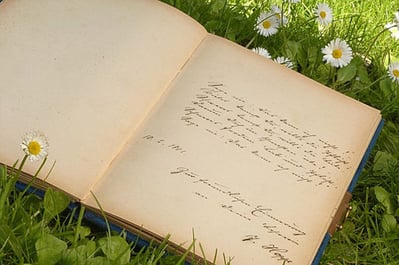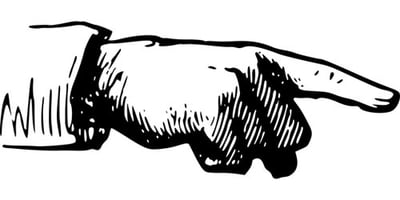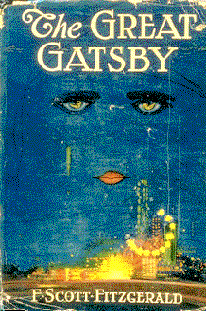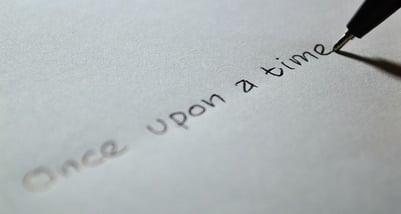Then wear the gold hat if that will move her
Then wear the gold hat if that will move her
Books Online Free
Page 1
Then wear the gold hat, if that will move her;
If you can bounce high, bounce for her too,
Till she cry «Lover, gold-hatted, high-bouncing lover,
I must have you!»
—THOMAS PARKE D’INVILLIERS
In my younger and more vulnerable years my father gave me some advice that I’ve been turning over in my mind ever since.
«Whenever you feel like criticizing any one,» he told me, «just remember that all the people in this world haven’t had the advantages that you’ve had.»
He didn’t say any more but we’ve always been unusually communicative in a reserved way, and I understood that he meant a great deal more than that. In consequence I’m inclined to reserve all judgments, a habit that has opened up many curious natures to me and also made me the victim of not a few veteran bores. The abnormal mind is quick to detect and attach itself to this quality when it appears in a normal person, and so it came about that in college I was unjustly accused of being a politician, because I was privy to the secret griefs of wild, unknown men. Most of the confidences were unsought—frequently I have feigned sleep, preoccupation, or a hostile levity when I realized by some unmistakable sign that an intimate revelation was quivering on the horizon—for the intimate revelations of young men or at least the terms in which they express them are usually plagiaristic and marred by obvious suppressions. Reserving judgments is a matter of infinite hope. I am still a little afraid of missing something if I forget that, as my father snobbishly suggested, and I snobbishly repeat a sense of the fundamental decencies is parcelled out unequally at birth.
And, after boasting this way of my tolerance, I come to the admission that it has a limit. Conduct may be founded on the hard rock or the wet marshes but after a certain point I don’t care what it’s founded on. When I came back from the East last autumn I felt that I wanted the world to be in uniform and at a sort of moral attention forever; I wanted no more riotous excursions with privileged glimpses into the human heart. Only Gatsby, the man who gives his name to this book, was exempt from my reaction—Gatsby who represented everything for which I have an unaffected scorn. If personality is an unbroken series of successful gestures, then there was something gorgeous about him, some heightened sensitivity to the promises of life, as if he were related to one of those intricate machines that register earthquakes ten thousand miles away. This responsiveness had nothing to do with that flabby impressionability which is dignified under the name of the «creative temperament»—it was an extraordinary gift for hope, a romantic readiness such as I have never found in any other person and which it is not likely I shall ever find again. No—Gatsby turned out all right at the end; it is what preyed on Gatsby, what foul dust floated in the wake of his dreams that temporarily closed out my interest in the abortive sorrows and short-winded elations of men.
My family have been prominent, well-to-do people in this middle-western city for three generations. The Carraways are something of a clan and we have a tradition that we’re descended from the Dukes of Buccleuch, but the actual founder of my line was my grandfather’s brother who came here in fifty-one, sent a substitute to the Civil War and started the wholesale hardware business that my father carries on today.
I never saw this great-uncle but I’m supposed to look like him—with special reference to the rather hard-boiled painting that hangs in Father’s office. I graduated from New Haven in 1915, just a quarter of a century after my father, and a little later I participated in that delayed Teutonic migration known as the Great War. I enjoyed the counter-raid so thoroughly that I came back restless. Instead of being the warm center of the world the middle-west now seemed like the ragged edge of the universe—so I decided to go east and learn the bond business. Everybody I knew was in the bond business so I supposed it could support one more single man. All my aunts and uncles talked it over as if they were choosing a prep-school for me and finally said, «Why—ye-es» with very grave, hesitant faces. Father agreed to finance me for a year and after various delays I came east, permanently, I thought, in the spring of twenty-two.
The practical thing was to find rooms in the city but it was a warm season and I had just left a country of wide lawns and friendly trees, so when a young man at the office suggested that we take a house together in a commuting town it sounded like a great idea. He found the house, a weather beaten cardboard bungalow at eighty a month, but at the last minute the firm ordered him to Washington and I went out to the country alone. I had a dog, at least I had him for a few days until he ran away, and an old Dodge and a Finnish woman who made my bed and cooked breakfast and muttered Finnish wisdom to herself over the electric stove.
It was lonely for a day or so until one morning some man, more recently arrived than I, stopped me on the road.
«How do you get to West Egg village?» he asked helplessly.
I told him. And as I walked on I was lonely no longer. I was a guide, a pathfinder, an original settler. He had casually conferred on me the freedom of the neighborhood.
And so with the sunshine and the great bursts of leaves growing on the trees—just as things grow in fast movies—I had that familiar conviction that life was beginning over again with the summer.
There was so much to read for one thing and so much fine health to be pulled down out of the young breath-giving air. I bought a dozen volumes on banking and credit and investment securities and they stood on my shelf in red and gold like new money from the mint, promising to unfold the shining secrets that only Midas and Morgan and Maecenas knew. And I had the high intention of reading many other books besides. I was rather literary in college—one year I wrote a series of very solemn and obvious editorials for the «Yale News»—and now I was going to bring back all such things into my life and become again that most limited of all specialists, the «well-rounded man.» This isn’t just an epigram—life is much more successfully looked at from a single window, after all.
„Then wear the gold hat, if that will move her;
If you can bounce high, bounce for her too,
Till she cry «Lover, gold-hatted, high-bouncing lover,
I must have you!“
Источник: The Great Gatsby
Фрэнсис Скотт Фицджеральд 67
Похожие цитаты
«Mariana In The North»
Orchard and Vineyard (1921)
— Garth Brooks American country music artist 1962
She’s Every Woman, written by Victoria Shaw and G. Brooks.
Song lyrics, Fresh Horses (1995)
— Jackie DeShannon American singer-songwriter 1941
«Bette Davis Eyes» (1975); written with Donna Weiss
— Brandon Sanderson American fantasy writer 1975
Источник: The Alloy of Law
— Anthony Trollope, книга The Small House at Allington
Источник: The Small House at Allington (1864), Ch. 4
St. 46.
The Diverting History of John Gilpin (1785)
«Symptoms of Love» from More Poems (1961).
Poems
— Jeffrey Moussaieff Masson American writer and activist 1941
Источник: The Nine Emotional Lives of Cats (2002), Ch. 2
Rich and Rare Were the Gems She Wore, st. 1.
Irish Melodies http://www.musicanet.org/robokopp/moore.html (1807–1834)
— Walt Whitman, книга Fulles d’herba
Источник: Leaves of Grass
By Khushwant Mubarak Singh quoted in «She had a lust for life»
SAT / ACT Prep Online Guides and Tips
Understanding The Great Gatsby First Line and Epigraph
There’s a reason why magazines regularly put together lists of the greatest first lines in all of literature: book openings make a huge impression on readers. How a book starts helps us orient in the world that the book is creating.
First, it gives us our first idea of the narrator, and the type of narration we’re going to encounter. Will it be a breathy first-person confession? Or a cool and detached third-person observation?
So what does the beginning of The Great Gatsby reveal? Read on for the meaning of this work’s epigraph, its opening line, and its beginning paragraphs.
Article Roadmap
Quick Note on Our Citations
Our citation format in this guide is (chapter.paragraph). We’re using this system since there are many editions of Gatsby, so using page numbers would only work for students with our copy of the book. To find a quotation we cite via chapter and paragraph in your book, you can either eyeball it (Paragraph 1-50: beginning of chapter; 50-100: middle of chapter; 100-on: end of chapter), or use the search function if you’re using an online or eReader version of the text.
The Epigraph Poem of The Great Gatsby
The novel is prefaced by this four-line poem:
Then wear the gold hat, if that will move her;
If you can bounce high, bounce for her too,
Till she cry «Lover, gold-hatted, high-bouncing lover,
I must have you!»
—Thomas Parke D’Invilliers
First, let’s analyze the poem, and then we can talk about who this D’Invilliers fellow is.
» Then Wear the Gold Hat»
In the most basic sense, the poem is a piece of advice. We know this because the first words, » then wear,» make it sound like we are hearing the middle of a conversation. Someone has been complaining about his romantic problems with a specific » she,» and the poem’s speaker is answering with some tips on what to do.
The advice the poem is: go out of your way to impress her with your wealth/status (» gold hat» ), and with your derring-do (» bounce high» ). Whatever you can possibly do to attract her attention is worth it if she ends up won over, because then she will be insatiable (» I must have you» ). Of course, this image of a ‘gold-hatted, high-bouncing lover’ is clownish at best and completely absurd at worst.
The poem echoes the novel’s plot and characterizations:
Thomas Parke D’Invilliers
Guess what? There is no such poet as D’Invilliers! Fitzgerald made him up, and made up this poem as well.
Here, the assumed name and invented persona of this poet also tie into the Gatsby journey, playing into the novel’s key theme of the mutability of identity. James Gatz transforms himself into the glamorous Jay Gatsby, and this poet is a cover identity for Fitzgerald.

The Great Gatsby First Lines
This is how Chapter 1 of this novel begins:
In my younger and more vulnerable years my father gave me some advice that I’ve been turning over in my mind ever since.
» Whenever you feel like criticizing any one,» he told me, » just remember that all the people in this world haven’t had the advantages that you’ve had.» (1.1-2)
Let’s take the Great Gatsby first lines apart in a variety of ways.
What We Learn About the Narrator
The first thing we figure out is that the story is going to be told in the first person (meaning it’s narrated by an » I» voice who is a character in the story and who is present at the events he describes).
The second thing we see is that there is at least one time shift in the narration. Nick is older now, but is looking back on youth and a more » vulnerable» time. There are several different ways to interpret this vulnerability, especially before we have read further: this narrator may be vulnerable to being hurt by others, to being influenced by bad surroundings/people, or maybe even to taking his dad’s advice at face value.
We also get our first clue into Nick’s background: he comes from money, education, and breeding (» advantages» ), which will allow him to fit in reasonably well in the old-money East Coast world that he will encounter in the novel.
The Advice Given to Nick by His Father
How Nick’s Father’s Advice Shapes How Nick Tells The Story
Unlike the novel’s epigraph, which really is advice on what to do, Nick’s father’s words seem more like either a criticism of Nick’s bad habits or even a warning of some kind. In other words, the dad’s-advice-framing-narrative makes the novel into a reverse Aesop’s fable, where the moral comes first and is followed by the story that proves the rule.
Primarily, this » advice» puts a big barrier between Nick and » all the people in this world» because he has had » advantages» that they haven’t. So what are these advantages?
This means that during the rest of the novel, this snobbishness and this tendency to dismiss everyone else as being inferior is something to watch for in Nick’s description of other people and events.

The Novel’s First Six Paragraphs
Nick spends the first paragraphs of the novel encouraging us to trust him and to believe in his impartiality and good judgment. Instead of launching into the plot of the story he’s about to tell, Nick instead spends a significant chunk of time explaining his family background, giving us a quick bio of himself up to the point of the summer of 1922.
In other words, the first six paragraphs of The Great Gatsby are devoted to establishing Nick as both an interesting character and a relatively objective narrator. Should we accept everything he says at face value?
Nick as a Narrator
The main question we have to ask ourselves is: is Nick’s first-person narrator reliable or unreliable?
On the one hand, Nick sets himself up as an objective outsider. He comes from the Midwest, a place of morality and stability, compared to the wild East that has replaced the Wild West as the site of money making and excess lawlessness. And he talks about his father’s advice making him » inclined to reserve all judgments» (1.3), which makes him an ideal confidant (» I was privy to the secret griefs of wild, unknown men» (1.3)).
But on the other hand, Nick says that his tolerance and neutrality isn’t infinite (» After boasting this way of my tolerance, I come to the admission that it has a limit» (1.4)).
So which do we believe? Is he a neutral observer? Or a secretly judgmental critic? The fact that even this early on we have two competing descriptions of Nick reveals that he is an unreliable narrator. In other words, his opinions, biases, and agenda will color the way he tells us the story. Our job will be to tease out which parts are » fact» and which parts are just a » Nick’s eye view.»
Nick as a Character
We also learn that writing the novel is Nick’s way of grappling with the meaning of a story in which he played a part – like a form of psychotherapy. The experience he is telling us about has caused Nick to leave the East Coast jaded and disappointed. He comes » back from the East [feeling] that I wanted the world to be in uniform and at a sort of moral attention forever; I wanted no more riotous excursions with privileged glimpses into the human heart» (1.4).
Because we are listening to a story an older and wiser Nick is telling us about this formative summer, the mood is already elegiac (in other words, mournful) and sad. The summer that he is telling us about was formative, and for Nick, the novel is a coming-of-age story.
It’s not surprising that Chapter 1 ends with feelings of regret and yearning for the unreachable, culminating with the crucial image of Gatsby stretching his hands toward the unreachable Daisy.

The Bottom Line
What’s Next?
Explore the rest of Chapter 1: it’s plot, most important quotations, connections to the novel’s larger themes, and the main events for each character.
Learn more about Nick Carraway to see whether he lives up to his promise of objective observation, and what it is that so disappoints him about his time on the East coast.
Consider how the unreliable first-person narrator affects our understanding of the novel’s events, settings, and other characters.
Get an overview of the whole novel: its plot, characters, themes, symbols, motifs, and all the other analysis that we have put together to help you make sense of what you’re reading.
Want to build the best possible college application?
We can help. PrepScholar Admissions is the world’s best admissions consulting service. We combine world-class admissions counselors with our data-driven, proprietary admissions strategies. We’ve overseen thousands of students get into their top choice schools, from state colleges to the Ivy League.
We know what kinds of students colleges want to admit. We want to get you admitted to your dream schools.
Learn more about PrepScholar Admissions to maximize your chance of getting in.
Have friends who also need help with test prep? Share this article!
Anna scored in the 99th percentile on her SATs in high school, and went on to major in English at Princeton and to get her doctorate in English Literature at Columbia. She is passionate about improving student access to higher education.
Student and Parent Forum
Our new student and parent forum, at ExpertHub.PrepScholar.com, allow you to interact with your peers and the PrepScholar staff. See how other students and parents are navigating high school, college, and the college admissions process. Ask questions; get answers.
Ask a Question Below
Have any questions about this article or other topics? Ask below and we’ll reply!
Френсис Скотт Фицджеральд «Великий Гэтсби»
“The Great Gatsby” by F. Scott Fitzgerald
Once again to Zelda
Then wear the gold hat, if that will move her;
If you can bounce high, bounce for her too,
’Till she cry “Lover, gold-hatted, high-bouncing lover,
I must have you!”
THOMAS PARKE D’INVILLIERS
 |


























